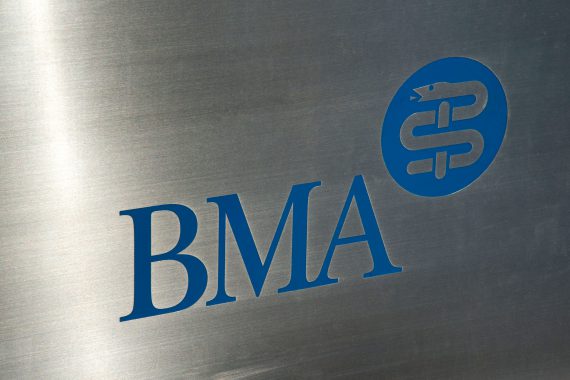BMA to release guidance on limiting GP workload

The BMA is working to draw up guidance to help GP practices manage their workload to safe limits, which would enable GPs to set a capacity limit on the number of patients seen in a day, Pulse understands.
Dr Paul Roblin, chief executive of Berkshire, Buckinghamshire and Oxfordshire LMCs, said the BMA is planning ‘a major push’ on limiting the workload expected of GPs based on discussion at his local ‘GPC roadshow’ event last week.
He said the guidance will see GPs ‘start to say, I’ve reached the capacity for seeing patients for the day’ with any remaining patients told ‘to go elsewhere’.
While the BMA would not confirm the details of the guidance as it is still in draft form, Dr Roblin said it could see federations being commissioned by CCGs ‘to provide hubs or overflow clinics, to take patients requiring assessment on the day, that exceeded the capacity of their own practice’.
This mirrors the BMA’s calls for a set maximum limit to the number of patients GPs can see in a day, which was laid out its Urgent Prescription for General Practice campaign in 2016.
NHS England later expressed support for the GPC’s plans to allow practices to refer patients to an ‘overflow’ hub, allowing GPs to offer 15-minute consultations and cap the number of consultations to 25 a day.
However, a Pulse survey revealed that GPs in the UK have an average of 41.5 patient contacts every day, which is 60% more than the number considered safe by European GPs.
Dr Roblin said: ‘I think there’s going to be a major push on limiting the workload that can be expected under the GMS contract so that GPs are not working unsafely by having a never ending day.’
He added: ‘We have to limit what you get for the inadequate funding flow so it can’t be an eat all you can buffet, which is what it is at the moment.
‘For the limited per capita sums per annum that is paid under the GMS contract, the workload that you get for that also has to be limited.’
At last year’s Annual Representative Meeting, BMA leaders voted in favour of general practice adopting a hospital-style model of declaring ‘black alert’ to indicate that maximum safe capacity has been reached.
Dr Roblin said that the need for such guidance was ‘heightened by the Dr Bawa-Garba case because she was working in very unsafe circumstances and has been hung out to dry by the GMC’.
Dr Hadiza Bawa-Garba was responsible for the children’s admission unit, the emergency department and the ward at Leicester Royal Infirmary on the day of Jack’s death, which the MPTS listed as a mitigating factor in their decision to suspend her registration before the GMC took the decision to the High Court.
The GMC subsequently won a controversial High Court bid to strike off the junior doctor from the medical register.
Dr Brian Balmer, a GPC member involved in drawing up the guidance, said: ‘We are working on what we hope will be useful guidance and tools for practices to start sensibly to work in a more safe manner – safety being a number one issue always, and particularly given recent events with the Dr Bawa-Garba case.’
While the BMA would not confirm the details of the guidance as it was still in the draft stage, a spokesperson said the BMA is working on motions for the upcoming LMC conference linked to helping practices manage their workload to safe limits and plans to producing guidance once it has been fully developed.
The war on workload continues
Pulse launched it’s ‘war on workload’ in July 2016 with a crowdsourcing initiative to find the best way to save time, with a practice in Bridlington describing their the system to make sure letters are filtered by trained admin staff before being sent to GPs, cutting down the number of letters that GPs saw by 70%.
However, workload continued to be an issue with the some NHS managers failing to introduce agreed changes to the 2016/17 standard contract made by NHS England to curb the workload dump on GPs from secondary care.
In response the GPC published a set of template letters to send to hospitals who did not comply with the contract changes.
The 2017/18 standard contract issued further restrictions, including having fit notes provided by hospital medics rather than the patient’s GP.
But Pulse recently revealed that GPs are issuing more so-called ‘fit notes’ than ever for patients, with the latest available figures showing a 9% increase in the number of fit notes issued.
Pulse July survey
Take our July 2025 survey to potentially win £1.000 worth of tokens











